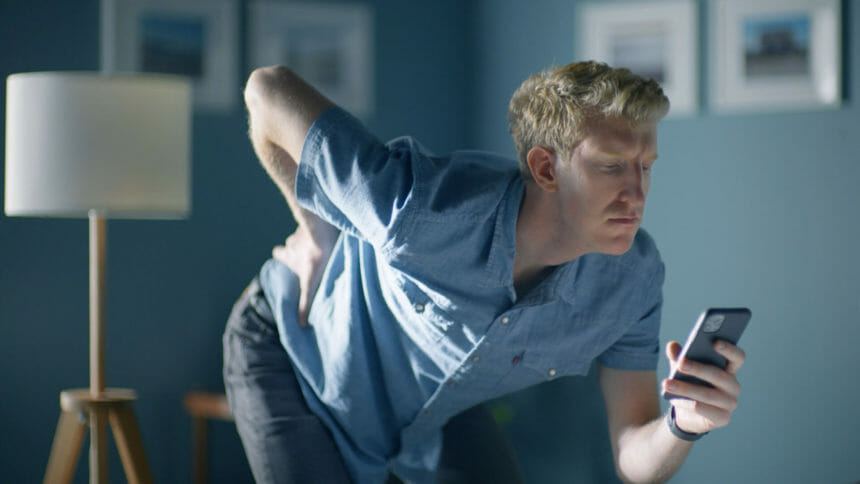In its first national TV campaign, Zocdoc isn’t afraid to show the bad parts of booking a doctor appointment.
The TV spot for the company’s “Healthcare, but Easy” campaign finds Zocdoc exchanging the typical serious approach of most healthcare DTC for a satirical look at the old way of booking appointments.
“A lot of healthcare advertising is wonderful, but very serious,” said Richard Fine, VP of strategy at Zocdoc. “If you look at many health systems, the advertising is very good, but it usually deals with serious conditions.”
Fine added that the serious-and-straightforward approach has its limitations. “For users who have the sniffles or a hurt back, they don’t necessarily want to know about your cancer specialty, because it feels like you have to be very sick to engage with that. That’s why we’re trying to do this in a lighter way and make it more approachable for the patient,” he said.
The Zocdoc spot follows a patient with a hurt back who experiences all of the headaches of booking appointments. He is asked to wait six weeks to see a doctor, then goes to an out-of-network provider and receives a huge bill, all while hunched over in pain.
The spot ends with the patient using Zocdoc to book a same-day appointment and getting his back straightened out, literally.
The lighthearted tone provides a contrast with much recent health-related DTC, especially given its debut at a time when many brands are running serious commercials about COVID-19. Fine hopes adapting that approach will make it easier for patients to engage with the Zocdoc platform.
“The way to get people to engage is to make it easier to engage with them, rather than reflecting back how difficult things are,” Fine said.
“Healthcare, But Easy” represents Zocdoc’s first national primetime TV effort. Fine said a recent business model shift had freed up advertising budgets to create bigger campaigns.
The effort also aligns with Zocdoc’s recent push into telehealth. The campaign is targeting a wide audience with the commercial because Zocdoc hopes to be a “universal brand,” Fine said.
“If you talk to people about the healthcare experience they will tell you, ‘Yes my back hurt, but what was worse was all the other stuff that went with it,’” he explained. “So much of medicine is geared around the five minutes in the exam room and the medical conditions, but much of the pain and bad experiences have nothing to do with that. It’s about all the stuff that happens outside the exam room.”







